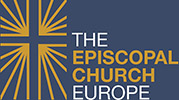Yearly on January 06 from 01/06/2017 to 01/06/2027

"Epiphany" is a word of Greek origin, related to such English words as "theophany," "phenotype," and "phenomenon." It means an appearance, a displaying, a showing forth, a making clear or public or obvious. On this day, Christians have traditionally celebrated the making known of Jesus Christ to the world.
Several events have been thought of as special instances of the making known of Our Lord, such as: His birth; the coming of the Magi; His Baptism; His first miracle at Cana. Current majority usage, at least in the West, celebrates His birth on 25 December, the coming of the Magi on 6 January, and His Baptism on the next Sunday. On the following Sundays up to the beginning of Lent, we remember Our Lord's public preaching of the kingdom, particularly the earlier stages of that preaching when opposition had not yet crystallized. On the Last Sunday after Epiphany (the Sunday before Lent), we commemorate the Transfiguration, the climax of this first phase of our Lord's public ministry.
Today, then, we commemorate the visit of the Magi, a token of the day when all the peoples of the earth will acknowledge Jesus Christ as Lord, God, and Savior. The visit of the Magi is recorded in the second chapter of Matthew. Magi (magoi), the Latin (Greek) plural of magus (magos), referred originally to the priests of Parsiism, the monotheistic religion preached in Persia by Zoroaster in about the sixth century BC. In later years it came to mean magicians, priests, physicians, scribes, scholars, or learned men. From it we derive our word "magic."
The KJV Bible translates the word as "wise men." Matthew tells us how they came to Jerusalem and then to Bethlehem, and gave gifts to the infant Jesus. In poem and picture, the wise men came to be thought of as three kings, and in many countries (particularly Spanish-speaking ones), children receive gifts, not on 25 December, but on 6 January in memory of the gifts that the wise men brought to the Holy Child. Christian writers have interpreted the gold as a sign that Jesus is King, the Frankincense as a sign that He is God, and the myrrh (used in embalming) as a sign that He is by His death and Resurrection the Savior of the world. This imagery is found in the song, "We Three Kings of Orient Are." The three gifts are also understood a a sign of three responses that we ought to make to Christ.
